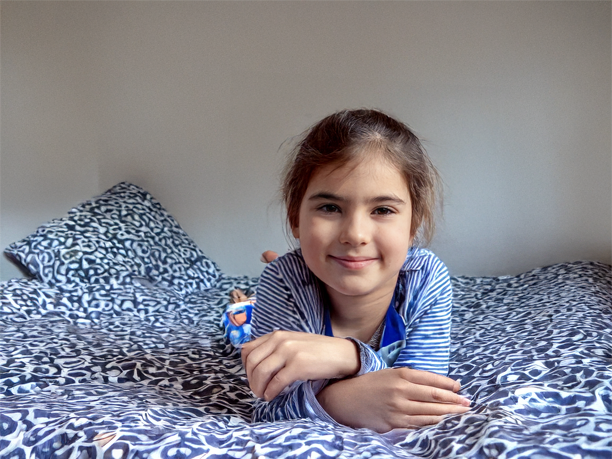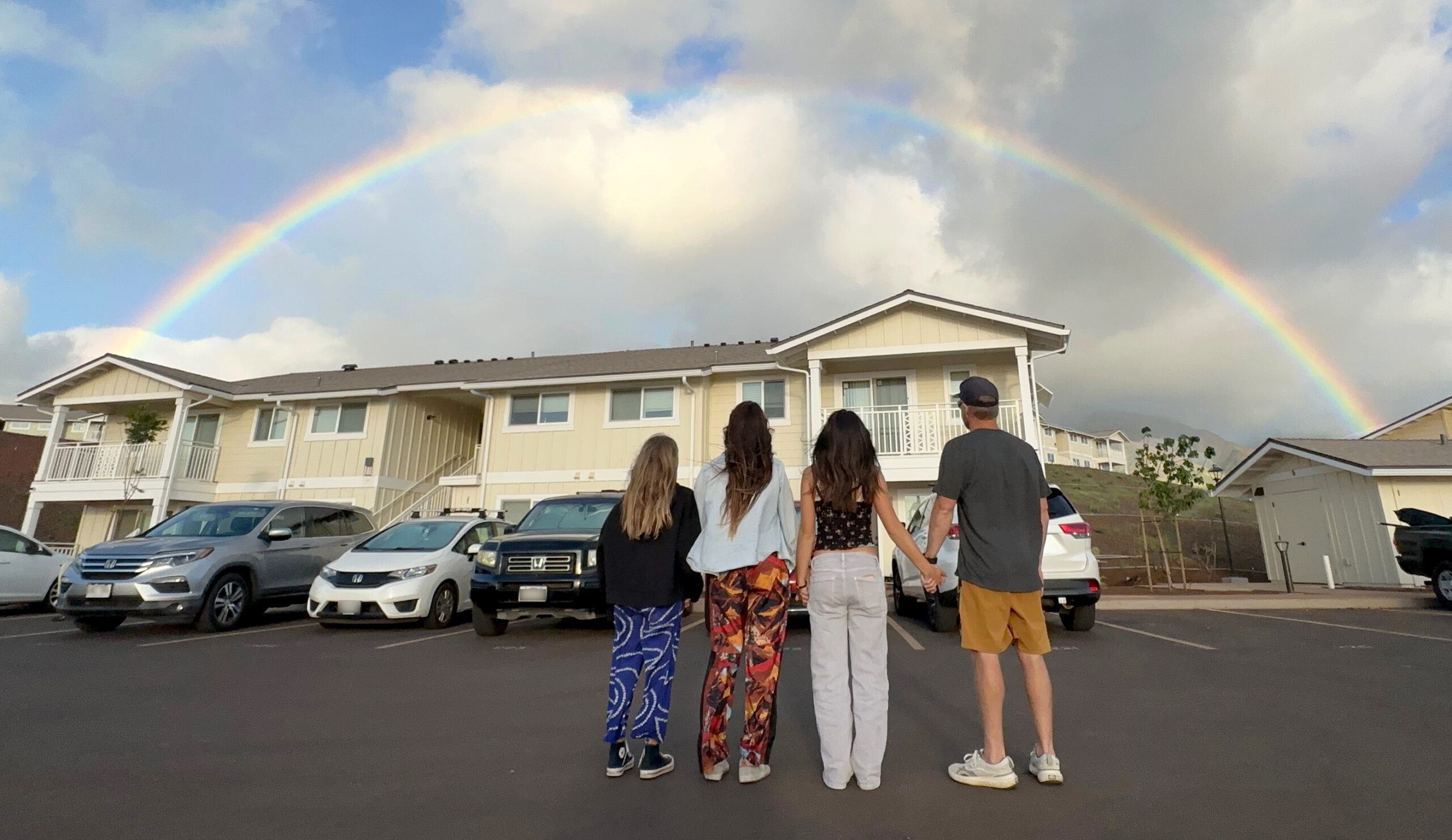A ʻOhana's Fight for Stability
The sun had set over Kailua Kona, and the night was warm, typical for this part of the island. Terri sat in the front seat of the family’s aging van, the windows cracked just enough to let in the cool evening breeze. It had been almost three months since she and her ʻohana had been living this way—moving from Oʻahu to care for her aging father had seemed like the right thing to do at the time. But now, the weight of the situation was too heavy to ignore. Her father’s health was failing, and he didn’t have the mental clarity to support the children, let alone be a reliable figure in their lives. Terri had wanted to be there for him, but the decision to care for him had been far more difficult than she could have imagined.
And so, after leaving Oʻahu, Terri, her husband Kupono, and their three keiki found themselves at a crossroads. The Section 8 housing assistance they’d hoped would transfer from Oʻahu to Hawaiʻi Island had been delayed, leaving them unable to find stable housing. The constant pressure of living in their van weighed heavily on Terri’s shoulders. She did everything she could to hold it all together for her family. Kupono worked part-time as a security guard, trying his best to provide, but the hours were sparse, and the uncertainty of their living situation only made things harder. They didn’t know where they would sleep next week, let alone next month. They were in survival mode, and the days felt like they bled into one another in a haze of worry and exhaustion.
But Terri refused to give up. She cared deeply for her children—her two youngest, who both had special needs, and her eldest, who, despite being the most independent, often found himself shouldering more responsibility than a child should. Terri was determined that they would find a way to get out of the van, to get their lives back on track.
Before reaching out to Catholic Charities Hawaiʻi, Terri had tried everything she could think of. She had worked with the Neighborhood Place of Puna (NPP) and applied for the Emergency Rental Assistance Program (ERAP). There was a small glimmer of hope when Terri found a unit at an apartment in Kona, a place that seemed perfect for their needs. But the ERAP policy was rigid, requiring a signed lease before they could offer any assistance. The problem was, she could not get a signed lease until they had confirmation of assistance from ERAP, and ERAP refused to assist without a signed lease. It was a maddening cycle of red tape that made it feel as though there was no way out.
That’s when Terri reached out to Catholic Charities Hawaiʻi’s Housing Support Program, hoping that someone could help bridge the gap. It wasn’t an easy decision; Terri had already faced rejection from other organizations, and the exhaustion of advocating for her family on her own had left her feeling defeated. But Catholic Charities Hawaiʻi saw what others hadn’t. They understood that families like Terri’s needed more than just a handout—they needed support navigating the system, someone who could advocate for them and help open doors that might otherwise remain closed.
Catholic Charities Hawaiʻi took a different approach. Instead of waiting for the paperwork to align perfectly, they accepted the proposed lease from the Kona apartment. They issued a conditional commitment, assuring the landlord that they would assist, and from there, the process moved forward. It wasn’t a perfect solution, but it was the answer Terri and her family had been desperately searching for.
The day they were approved felt like a breath of fresh air. Terri could hardly believe it. After months of uncertainty, of sleeping in their van, and of constant worry about what tomorrow would bring, they had a home. It wasn’t a mansion, but it was a place where they could finally begin to rebuild their lives. For Terri, the relief was overwhelming. She still struggled with her anxiety and PTSD, but now, with a roof over her head, there was a glimmer of hope that perhaps things could get better. She watched her children with a sense of pride, knowing they had made it through something difficult together.
Terri’s story was one of resilience and determination. Having grown up in the foster care system herself, she understood better than most the importance of stability. She had once been a foster youth, and after finding stability as an adult, she became a foster parent. It was a role she cherished deeply, and though her circumstances had made it impossible to continue fostering for the moment, Terri knew that once she and her family were more settled and secure in their housing, she hoped to open her home to children in need once again. For Terri, giving back to the community and providing a loving, stable environment for others was as important as providing for her own children.

The road ahead would still be challenging. Kupono’s part-time work and the complexities of their financial situation would continue to be a struggle. But now, at least they had a foundation—an apartment to call their own. Terri’s ʻohana’s story wasn’t just about the bureaucratic hurdles they overcame. It was about resilience, about Terri’s determination to care for her children and make sure they had the stability they deserved. It was about finding the right people at the right time who believed in their potential and stepped in when the system failed them.
As Terri looked out of the van’s window at the lights of Kailua Kona flickering in the distance, she finally allowed herself a moment to feel hopeful. It wasn’t much, but it was enough. With a little help, they were on their way to building a new life—and perhaps, one day soon, opening their hearts and home to others who needed it just as much as they once had.





